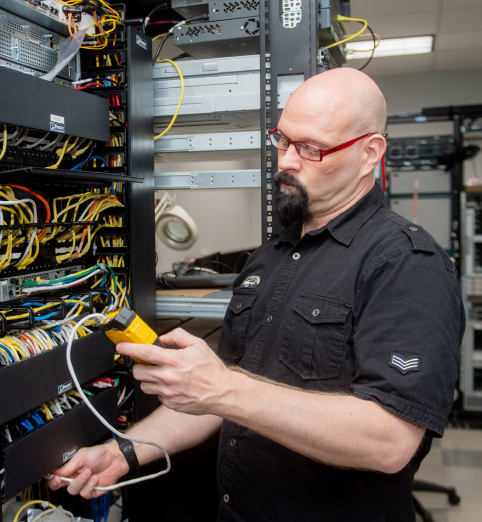Nobody likes creepers. However, employee monitoring technology is becoming almost as common as us being tracked by Facebook and Amazon. Nearly 80% of companies digitally monitor employees, and about half have fired employees for internet and email infractions, according to research from the ePolicy Institute. While employers have the legal right to track internet activity, emails, and software use by employees using computers and mobile devices, should they?
Monitoring Has Its Advantages
Monitoring employees has some major benefits for employers (… just like Facebook benefits from tracking us). First, it serves as a means of protection. If a business is tracking what employees are doing, it might uncover instances of employee theft or misconduct. And in the case of criminal or civil action, monitoring provides an evidence trail of the activity.
Employees who know they’re being monitored are more likely to follow harassment guidelines and less likely to access inappropriate websites (ahem, internet porn) providing a safer workspace. Those who do engage in harassment or accessing inappropriate sites are flagged and can be disciplined. Knowing they’re being monitored may also discourage other forms of misuse. Employees are said to spend anywhere from one to three hours a day surfing the web for personal reasons, depending on the study.
Monitoring can improve workplace productivity as well. If an employer can evaluate where employees are spending the most time, they can identify clogs in their workflows. They can also use the data to inform hiring decisions based on where the greatest needs are.
Don’t Be a Creeper
Despite the advantages, privacy and the employer-employee relationship are also major considerations. Managers should consider the difference between monitoring and surveillance says Andrew Walls, security and risk analysts at Gartner, Inc. Monitoring–good; surveillance–creepy. If regular monitoring is something you’re already doing or considering for the future, here are some suggestions for doing it in the most ethical and positive ways to avoid being seen as “big brother.”
Monitor with Class
Set a written policy.
Make rights and responsibilities for computers and digital devices clear by creating use guidelines for employees. The guidelines could spell out what’s acceptable use of email, internet, and social networks, as well as establish a digital code of conduct for employees to sign. You should also be clear about how the company will monitor employees, what will be monitored, and what the consequences will be for violating the use policy.
2. Inform your workforce.
So you don’t run into morale or legal issues, make sure you’re fully transparent about how you’re monitoring employees. Create processes to inform new employees and to update employees if there are changes. If you inform workers about the advantages monitoring gives the business, especially when it comes to protection, they’ll better understand why it’s necessary. You also want to share what kinds of personal information they should avoid accessing on company-owned devices for their own privacy and protection. Not only will that help them maintain healthy boundaries, but it will keep the business from unintentionally learning private data that could lead to privacy or discrimination disputes.
3. Use technology tools.
So that no one is prying into everyone’s data, use one of the numerous products for monitoring digital devices and networks. You can set these types of programs to do things like flag websites or URLs containing certain words or phrases or alert you to “suspicious activity.” You can also use software that filters inappropriate websites and material.
4. Know your state’s laws regarding monitoring.
Different states have different laws when it comes to workplace privacy and employee monitoring. For example, Connecticut requires companies to inform employees about monitoring in writing and detail the tracking methods used to monitor. In states like California, Florida, Louisiana, and South Carolina, employers have to be careful about how they monitor. Those states have constitutions that guarantee residents a right to privacy.
Following these tips should help you strike the important balance between mitigating risks for your business and maintaining good relationships with employees. If you need assistance with maintaining your business hardware and software, designing your IT infrastructure, or selecting the right hardware, you can start a conversation with one of Inteleca’s expert engineers HERE.



